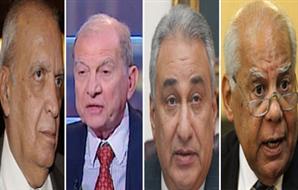As liberal and secular-leaning political forces continue to find themselves in a bit of a bind over whether or not to support the MB's presidential candidate Mohammed Morsi in the runoffs against former regime candidate Ahmed Shafiq, one idea was to present a proposal with the minimum set of acceptable promises that Morsi had to agree to before winning their endorsement. However, that idea has been taken and instead presented to the public at large, up for grabs by either, or both, candidate. The problem is that it means that some of them are implying they might theoretically consider endorsing Shafiq or that, at least, they are pitting Shafiq against Morsi so as to enter a bidding war. Not necessarily the most tactful move if you want to maintain your pro-revolution credentials and build a vital long-term relationship with the country's largest political group. Still, I understand that perhaps they are trying to generate the biggest possible public pressure, which is unquestionably needed.
Al-Watan, Egypt's newest newspaper, and Al-Ahram both have different presentations of how the document is like, as neither of them actually published the charter itself. We seem to know the following:
- It reaffirms article two of the 1971 constitution as it stands, stipulating that Islam is the religion of the state, Arabic is the official language and that the "principles of the Islamic Shari'a are the main source of legislation," while demanding the addition of: "with non-Muslims having the right to refer to their own laws (literally: Shari'as)) The previous interpretations of the article by the Supreme Court would be upheld.
- Calls for the application of the Universal Declaration On Human Rights, reaffirms the principle of equal citizenship, denounces discrimination and practices such as the accusation of others of apostasy.
- Stresses the importance of the separation of powers, the independence of the judiciary.
- Before the elections runoff, the willing candidate must announce a "presidential team" with multiple VPs who have real influence.
- Negotiations on a coalition government must begin now, which would include youth, different political groups, women, copts.
- Al-Azhar becomes the only official reference on Islamic matters.
- Equal rights in the construction of house of worship and in the practice of religious rituals.
- Promises to facilitate the regular peaceful transfer of power.
- A fairer composition for the constituent assembly in charge of writing the constitution. Only 35 out of 100 members would come from parties represented in the parliament by at least 5 sears, and they should be divided equally among those different parties and political groups, with the remaining 65 coming from different national groups. Decisions would be taken by two/thirds majority.
- The collective practice of politics should be done through official parties, and not through organisations or groups with sectarian bases.
- Demands the replacement of the (Orwellian) Ministry Of Information with a National Council For Media/Information (BBC-like structure.)
- Ensures the right to peaceful protest and public "resistance and revolution," says Ahram.
- Insists on social justice and the empowerment of underprivileged groups in society.
The "United Civil Current," which wrote this document, included participation by SDP head Mohammed Abul-Ghar, Hazem Al-Biblawy, Sameh Ashour and others (including some alleged and unspecified participation or attendance of deliberation by presidential candidates Amr Moussa and Khaled Ali), and was drafted by Constitutional Expert Nour Farahat.







